Executive Interviews
Our Executive Interviews feature top leaders from across the disciplines that we specialise in, sharing their career advice and experience with candidates seeking success in those sectors.
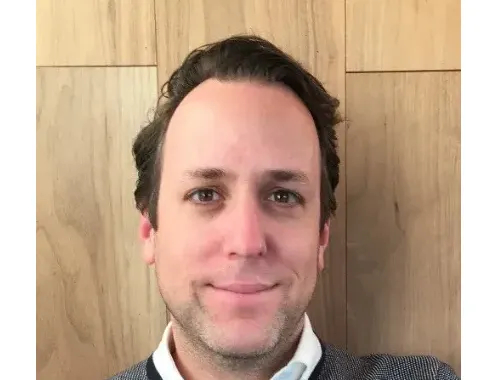
Elad Levi - Head of Inland Services at Maersk
Your career began when you joined PwC in Israel. How do you think your time in the Big 4 has helped you in your longer-term career and what are the benefits of a Big 4 background when you are recruiting? Any drawbacks?
The Big 4 is a great school - you get exposure to many industries. I worked with Pharma and Hi-tech, for example – working in high intense projects which help to develop and set your mind when you start your career. It gave me quite some tools to take through my career: technical understanding; to understand Accounting; read and understand a reporting standard; to understand what it means and how it influences the overall financials. It is very, very key. There are few people in the business world, even in Finance, who can articulate something like that. As you progress your career, it’s really important to be able to ask the right questions.
When we moved to IFRS 16 – about a year ago – the tools that I had brought from the Big 4 helped me to really understand how it impacts from a performance perspective.
When you work for the Big 4, you need to write down and allocate hours you spend for each customer/project – this gets you into a mindset that every minute counts. Your day must be very productive. I still use this today, reviewing the work I did versus what I set out to do and ensuring that my calendar has served a purpose.
The other experience that’s really important is the customer interaction. In the Big 4, if you progress well, you can be working directly with customers quite quickly; even from a young age dealing with executives, authorities, commerce office, etc. The ability to work and understand the customer and provide them with comfort is a great experience for when you start to move into more commercial roles.
The drawbacks are that time is limited, and you tend to be focusing on technical skills and less focused on the business. It can become more routine and a little limiting in certain cases, especially if you want to have a more commercial role.
You have now enjoyed over eight years working for Maersk. How did you keep your career varied and challenging during that time?
I have had seven positions in almost eight years, so I’ve been very fortunate. It has been a great experience and there hasn’t been a dull moment. It’s a fast-changing business environment and so you constantly have to reinvent yourself. You always need to be on top of the business environment – the company has a very ambitious vision and, in addition, the people here are very driven and talented, and the combination of those factors makes this journey really great.
The world has been unpredictable in recent years, which only adds interest to the job. COVID-19 has changed the future of the way we work; supply chain, the products we buy and the way we buy. Without a digital channel in consumer goods, for example, then it’s difficult to survive.
At Maersk, I have had the opportunity to work in four different countries, in different roles, with different functions and teams, and I find it really exciting. It may seem a long time to have been with one company, but the opportunity to keep growing personally and professionally is extremely rewarding.
In what ways does Maersk provide a rewarding environment for young Finance professionals?
I’m often jealous of the new joiners to the company who join straight out of university, as we have several programmes which rotate them and teach them different skills in a variety of functions. In general, what is great as a young professional is that Maersk offers a career path, rather than a just a role. The ambition level is up to you and the geography, function and division, too. You can build a picture around yourself from many different perspectives of the business. In addition, you get a mentor who helps you and builds you up as you progress along the career path. You also receive a lot of training along your growth path.
Even for me, I started in the Port business and now I’m in the Logistics business, and it was an eye-opener, as I hadn’t before seen the overall picture and how everything connected together. It’s great for an inquisitive person! You work with colleagues from all backgrounds and all over the world.
As a senior Finance professional by background and a business leader, what trends do you notice in world of Finance? What do you personally do to manage the changes?
I’m going to answer from a two-headed perspective. In the last year, I’ve become a ‘general manager’ and so I’ve learnt a lot more about the value of a Finance function. Finance is a profession that has evolved radically in the last few years. When I started, Finance leaders/professionals were just expected to bring the numbers and not so much the insight, whereas now it’s a given that you will be asked, “what insights do you bring to the table?”. This is while you also maintain all the basic, good and effective essentials – such as tax, compliance, reporting – which on their own are hard work. More and more, the notion in business is that Finance needs to work efficiently and maintain low costs to compete in a highly competitive industry.
In addition, the movement to BI and receive the credit they deserve.
In addition, I try to listen carefully and without bias – so using data as much as possible. Data is the only thing that’s objective in most cases. This helps me to make an objective decision.
I also learnt to communicate effectively. So, for example, in the same way that receiving a short video message from a friend can be more impactive than a text, taking short videos of you delivering business updates/successes can be more impactive and time efficient than a long-winded video conference call or long email.
Last, but not least, it’s important to have an ambition and a plan to achieve it – in alignment with your key stakeholders. Ensure that everybody is involved, focused and aligned to work towards it.
Can you tell us of an impactful experience in your career with a leader/manager? What did it teach you?
I had many impactful moments in my career. My most impactful was actually as a Manager myself. The more I grew up the ranks, the more I appreciated diversity, and realized how key is it to engage teams and to strength your management team. When we merge between the Moroccan and the Spanish organization, it was a great experience and insight on how two different cultures could bring so many benefits to the organization, by combining their strengths and creating a stronger organization. Furthermore, this really boosted engagement, as colleagues were interested to know more about the cultural aspects of their new colleagues, whether Spanish or Moroccan. Lastly, on a personal note, this is inspiring! We all carry our culture, whether business or personal, it is fascinating to see ways of looking at things.bition and a plan to achieve it – in alignment with your key stakeholders. Ensure that everybody is involved, focused and aligned to work towards it.
What do you do to manage your time effectively? How do you ensure that you maintain a good work/life balance?
I think that good work/life balance is relative to each person. However, as a Manager, if you are passionate about your work, you realise that work doesn’t end while you’re on holiday or during the weekend. That said, when I’m with my family, I try to ensure I’m fully present, not checking emails, etc., but will set time aside for essential work activities. For example, I will set time aside early on a Sunday morning or late in an evening to deal with work emails.
Thank you to Elad for speaking with our Associate Director, Jenny Callum.
Views and opinions contained within our Executive Interviews are those of the interviewee and not views shared by EMEA Recruitment.

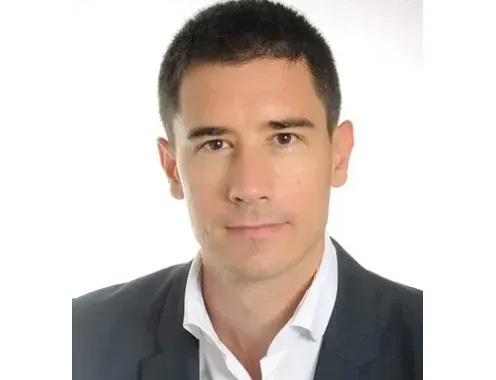
Ramon Legeren Alvarez - VP Finance, Head of Group FP&A and Global Controller at DSM Nutritional Products
How important do you think it is to have a career plan and, when making career moves, how much did this affect your decision-making process?
I think it is very important to have a career plan and, at the same time, I think it is equally important to remain flexible and adaptable, because my experience has been that the path to the dream job is not a straight line. What I believe is essential is to be very clear about what you ultimately want to achieve and start developing, as early as you can in your career, your perspective about that dream job, that ultimate goal in your career, so that the moves that you make in your professional journey are aligned with this objective. If I were to ask this question to someone earlier in their career, they may not yet be clear about what they ultimately want to achieve, and that is perfectly fine in the beginning of your career, but, as you progress, you really have to be thinking about that end-game, so you can build the relevant experiences along that path. In my career, I have been quite flexible in terms of roles, locations and industries, while I was also very fortunate to have great opportunities in the companies where I have worked, to build the competencies and gather the experiences that allowed me to become a well-rounded Finance professional and develop my leadership skills in the pursuit of my dream job.
What would be your advice to someone at an earlier stage in their Finance career, aspiring to be where you are now?
The advice is linked to the previous question; the first thing is to be very clear about what you want to achieve, and what your ultimate career and life goal is. The second one is to surround yourself with great people, and that will change along an individual’s career. Sometimes, it will be to follow a fantastic boss, other times it will be to join a team of high achievers that has a reputation for delivering high results, and, as you progress up in your career, it is about building great teams, formed by the best possible people, with skills and competencies that will complement your own. The third piece of advice would be to look for stretch assignments and to get out of the comfort zone every time, thus being willing to struggle in the job, at least at the beginning, and have some failures, as these provide growth and learning opportunities. I believe that, if you don’t have failures, you are not aiming high enough and that applies to the jobs you decide to go after. For me, these jobs have provided the biggest learnings and were the most rewarding.
Often when we are recruiting roles in the Life Science sector, we are asked to find candidates within an industry background. Having made this transition yourself from a relatively different industry, how important do you consider this to be and what were the challenges for you in making that transition?
It is an interesting question, because, throughout my interviews to join DSM, in the Life Science industry, it never came up as a topic. I guess that is because Finance is not really industry-specific, so the transition that I have done myself and that I have seen other people do, joining DSM, it has not been extremely challenging. What I found that helped me was that I was coming from a B2B business, where manufacturing was an important element. I think transitioning without the manufacturing or the B2B experience would have been a far bigger challenge. Some of the challenges the industry has in Finance are the long product cycles (which is specific to Life Sciences), innovation, regulatory, IP, or very heavy capital investments, which, for a Finance leader, are important elements that I had to become familiar with very early on. The global reach and the interconnected markets are a key aspect of this type of business, especially in large corporations, and being able to navigate the global environment is very important as you transition into Life Sciences, so having had that global background would be crucial. Finally, it is a market that is seeing a lot of consolidation and M&A [mergers and acquisitions] activity, so having M&A experience prior to going into Life Science would certainly help.
What are the most common mistakes you see at interviews and what advice would you give to candidates in regard to interview preparation?
One of the most common mistakes I see at interview is precisely the lack of preparation, and understanding the company and the role that they are interviewing for deeply. Not having done some research about the interviewers and, today, with LinkedIn and other social media, it is very helpful to know about who you are speaking to. When I see that someone has checked my LinkedIn profile before the interview, I take it as a positive sign; I can see this person is doing their homework. At the same time, if you have not done your homework about exactly what you are going to interview for and with whom, you do not have the same opportunities to highlight your strengths, or your fit to the role and the company. Similarly, if the candidate clearly articulates how this role aligns with their career plan and has thought through that, it shows me that the person has accountability for his/her own career and has made a conscious choice to be there at that interview.
The second issue is not asking questions, or not asking the right questions. In my interviews, I always leave ample time for Q&A by the candidate. I will reserve the last 15-20 minutes for the candidate to ask questions, and I rarely need the time! It is a missed opportunity to show your edge and your passion, to build the connection, and to show what is really important to you as a professional and individual.
The last thing that I would mention is not noticing how important a first impression is. The first handshake, the first smile, the first walk from the door to the room, or in the elevator... Be prepared before you even go into the meeting room and be aware of non-verbal communication.
Looking back through your established career, what would you identify as a personal highlight?
If I had to choose one highlight in my professional career, that would be my experience in South America, as a Regional Finance Director. I arrived in the region in very turbulent times in some of the countries, particularly in Brazil where I was based. It was an internal move, so I was familiar with the company and the industry, but as soon as I arrived, I had to get into turnaround mode, divesting parts of the company and rebuilding the motivation of the Finance organisation that had been through a lot of changes in the two years prior to my arrival. I left after two-and-a-half years, having built a lot of new skills, a stronger leadership foundation and great confidence. Equally important, I was succeeded by someone from my team, which gave me huge satisfaction. If I think about the experience that has accelerated my growth as a leader in my career, it is definitely this one. It was probably the biggest stretch assignment I had in my career, because of the different culture, the broad scope of the role and the challenging business conditions.
What would you consider to be the most rewarding part of your current role?
By far the most rewarding part of my role as a leader has been seeing the people around me grow and develop. This was not the most rewarding part when I was starting my career as an individual contributor, probably not even as a young manager; what gave me most satisfaction at that stage was to solve problems, make an impact and to be recognised in front of senior management. In the last five to ten years, I get much more excitement and happiness seeing my teams solve those problems, making the right decisions without me being involved, and them being recognised for their contributions and leadership. The answer to this question has changed multiple times throughout my career and I am sure it will change again in ten years from now. It is important to find the professional satisfaction in different places as you move on in your career, to keep renewing your own motivation.
What would you consider to be the most important attributes for a successful Chief Financial Officer (CFO)?
I found this a tough question, as it forces me to look at other CFOs and also to do self-reflection about the sort of CFO I would like to be.
I would refer to three aspects of the leadership of CFOs: the first one being communication. It is often underrated and not trained enough, especially for a CFO that has to translate numbers into operational and strategic insights, and decisions. An effective CFO must be able to present information to a variety of different parties, both internal and external, and do it in an impactful way.
The second one is having a strong and intuitive understanding of the business. It is impossible to become a CFO without strong competencies in Accounting and Finance, but that is not enough, definitely not today and probably not enough in the past, either. A good CFO must have comprehensive knowledge of how the business works, especially the commercial aspects. Commercially astute Finance leaders are rare, and those who can also navigate the commercial intricacies are the ones that can become very successful in their role.
Last and definitely not least is integrity, because, to the outside world, the CFO is seen as the guardian of the shareholder value and the stewards of the company. They must also be the internal conscience of the organisation and, in my opinion, it is critical for a CFO to have and to show this high level of integrity. Walking this fine line between supporting the business and, at the same time, making the right decision for the corporation is what distinguishes the CFO from other executives.
Due to the current crisis, we have seen a shift to more remote and flexible working styles, and most businesses believe this will be a permanent shift. How do you think this could impact Finance and any potential challenges?
I have personally seen the great benefits of flexible work, and the opportunity it offers to employees to balance better personal and professional life, look after their health, and the positive impact to the environment. I don’t conceive a future of working that will not have an enhanced level of flexibility than in the past. Broadly speaking, the main challenge I see in remote working concerns the culture and values of the company, and our ability to keep them visible and present in our daily jobs; it simply makes it harder to create a cohesive culture when the interactions with colleagues and leaders happen over the phone or video.
As far as the Finance function is concerned, a big part of the value that Finance brings, particularly in business partnering roles, is the ability to connect the dots, to manage risks, and to anticipate results and events before they even happen. In a remote set-up, the interactions are obviously a lot more limited, the opportunity to connect informally, to hear about a customer or supplier information, or even just have an ad hoc discussion with a colleague are far less, hence the value or the role of an effective Finance business partner may be limited, due to the lack of opportunities to get information and connect the dots.
Digital transformation is a key topic currently. As a Finance leader, how actively do you involve yourself in the implementation of these technologies, and what do you foresee as the possibilities and challenges for your Finance organisation?
I have been getting involved in this area for the last few years, but definitely not as much as I should. I am very committed to changing that in my new role, as I see a lot of value that can be created in the digital space, particularly in Finance.
There are some obvious possibilities, the low hanging fruit of digitalisation that many companies, including DSM, have jumped into: automation and robotics; digitalisation of reports; and advanced analytics. When we speak about digital Finance in multi-nationals these days, those topics are typically part of their digital agenda.
The next step in the digital roadmap should be the application of Artificial Intelligence and digital tools for predictive analytics. This is where I think Finance can add much more value than we do today: predicting the future, through data, and using the digital opportunities that we have in our hands to stop looking backwards only and start looking forward to help steer the business with new insights.
With regards to the challenges, the first one is that sometimes we are still missing the overall vision of digitalisation for the Finance function, or it’s too broadly defined. It has so many elements and is applied to so many initiatives that I have not yet come across that very clear and compelling vision and roadmap that everyone can understand.
The second challenge is the gap between the current capabilities and those that are required in digital Finance functions, starting with myself! The younger generations will be able to drive those changes faster than we will, but there is still a clear gap.
The third challenge, certainly connected with my Finance role, is cyber security. The more digital we go, the more data is available in the cloud in digital formats and is accessible all over the world. Therefore, the higher the risk of confidential information ending up in the wrong hands.
Thank you to Ramon for speaking with our Associate Director, Meriel Graham.
Views and opinions contained within our Executive Interviews are those of the interviewee and not views shared by EMEA Recruitment.
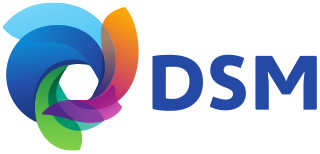
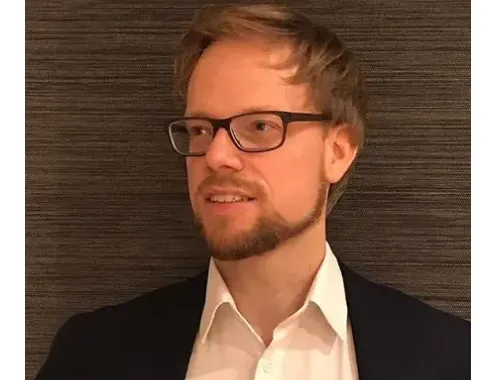
Christian Bruechle- Lead CFO at Coty Benelux
As Lead CFO for Coty Benelux, what is your typical day?
There is actually no day like the other. Mostly I spend my day in meetings and reviews, supporting the Business and Finance Teams to guide, remove roadblocks and ultimately to make decisions. This is quite diverse and ranges from business topics (i.e. can we launch a new product for a certain customer with a specific support model, ensuring this is financially attractive), to making decisions in the area of our Custodian/Accounting Teams (i.e. General Ledger, Accounts Receivable or Accounts Payable), to people management topics, questions related to the Coty’s Holding activities, or presenting new strategies to our local teams or to the Company Leadership Team, etc.
Coty allows me to have a balance between work and family, which means that I can take my son to Day Care every morning.
If you could go back, what decision would you change, if any, about your career, and why?
This is actually a very good question! Recently I was asked to present internally to the Benelux organisation about my career development and one of the questions was very similar. I wouldn’t actually change any of my decisions, but I would evaluate some of the situations I have encountered. In the end, everything turned out well and I feel quite lucky with it. Despite the fact there were times where I was thinking, “I’m not moving on fast enough”, I got to where I wanted to get to.
My advice is that ‘patience’ and choosing the ‘right’ assignment over the faster career step, definitely pays out in the end.
What made you decide to move to Coty in Amsterdam, from Procter & Gamble – Switzerland? How did this impact your family?
In the end it was the job opportunity of the position of the ‘Lead CFO Benelux’ which made me move to Amsterdam. Being able to run a relatively large Finance organisation, with around 40 employees and operating the full 360 degree set of finance tasks (including Business, Custodian/Accounting, Controls, Financing, etc.), plus with the special addition of Coty’s Holding activities also being managed out of the Benelux, made this decision easy.
However, on a personal side this came with a ‘downside’ of moving my family from Geneva, where we really enjoyed living. My partner needed to abandon a very attractive job with the United Nations. However today we are happy that we did it, since we all managed to settle well in the Netherlands, both professionally and as a family.
What advice would you provide to Senior Finance professionals considering the move to the Netherlands?
I have no specific advice but can only confirm that the Netherlands is a great place to work as well as to live and would recommend trying it. I especially appreciate the ‘direct and collaborative’ work style of Dutch people, as well as the versatile possibilities of outside work activities such as ‘Kite Surfing’, in addition to having a work/life balance!
What makes Coty an employer of choice?
In my opinion, Coty is probably one of the best companies for personal accelerated development and growth. Despite being a sizeable company, we are still growing together after the merge with P&G in 2016, which has created the need for a lot of flexibility, creativity and, above all, personal ownership. This is one of the reasons I joined and can confirm after 3 years that this is really the place for development and growth.
We are currently building the future company all together. A ‘learning’ environment in a big company of similar size, you usually would not get.
What key attributes does Coty look for in a potential employee?
It will always depend on the specific position we are hiring for (depends on the expertise or experience required). However, in general, we look for individuals with a strong commitment, a strong ‘own it, drive it’ attitude as well as a good ‘team player’ mindset. People who are committed and don’t get afraid of challenges.
As a business, how does Coty promote diversity and inclusion internally? How does this manifest itself in the finance function?
Yes, indeed diversity and inclusion is a very important factor for us, which we are not just promoting corporately, but driving also locally. Take for instance our local Benelux Finance team; within the team of around 40 people we have 8 different nationalities, circa 15 different backgrounds and ca. 60% female employees. Bringing the strength from different backgrounds!
How does Coty actively support with Corporate Social Responsibility?
Also in this area, we try to play our part. As an example, initiatives include a Charity Day, where all employees support local projects for one day. We are currently trying to make our offices ‘greener’ by specific waste reduction activities; less/no plastic initiatives, taking the stairs/saving energy and supporting specific individual fundraising projects that are initiated by our employees.
At a global level, Coty and its brands are committed to minimizing its impact on the environment and to a range of social causes, such as the “We Stand For You” program, co-led with Global Citizen, aiming at raising Coty associates’ voices to fight against discrimination, whether on gender, LGBTI, ethnicity or disability.
If you didn’t work in finance, what another career would you like to have tried?
Before starting my studies of Finance, I was actually looking into Environmental Engineering as an alternative study, as this was my passion. At a later stage during my time at University I was also considering doing a side move towards Diplomacy, which is also why I specifically chose to study for one year in France.
What beauty products can you not live without?
If worst comes to worst, I guess I could live without any beauty products. However, having worked in this industry for a very long time now, I actually get to (and enjoy) trying new products all the time to stay close to latest developments and innovations of the category.

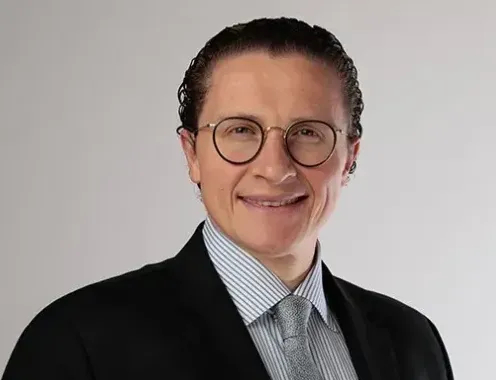
Alexander Albrecht- Finance Director Europe - LECO
What excites you about working for LECO?
We are a global family business that has the advantage of a personal culture where people care about each.
I’m given the opportunity to develop my own ideas and have a lot of freedom to manage the administration of our European Subsidiaries – Finance, Supply Chain, HR and Legal -
How does the business stand out from the market and your competitors?
We have an outstanding sales and service organisation which cares about the customer. Sales does not end with selling an instrument to the customer; it is the aftersales service which really makes a difference for us and we have people who have worked here for some time - I don’t think any of competitors can deliver a similar quality. Furthermore, we have a high level of vertical integration in our production, meaning that we really do a lot of stuff on our own, which is not that common any more – nearly every screw is still produced in St Joseph, Michigan which helps us to control the quality of our products.
What would you say is the most rewarding part of your role?
I would say seeing the success of the company is the biggest reward and seeing satisfaction from the joy of the team working together. I personally find that a satisfying factor.
When did you decide to explore a career in accountancy and finance and why?
At school I was already interested in accounting and I always had a strong tendency towards that; during my studies that sort of firmed this up. I was seeing finance as a backbone for any organisation and this gave me the opportunity to sneak into every corner of a company! I think there is probably no area like finance, where from day one you get to see and get in touch with every area of a business.
Looking back through your established career, what would you identify as a personal highlight?
The biggest highlight for me or the latest achievement which I am proud of is the reorganisation which we have done here. LECO Europe has been an established company, but the question asks re. established career, and I don’t know if I am at the stage to call it an established career! I can tell you for sure that over the last years we have been driving a change process to renew the organisation and to bring in fresh blood to change processes and this is one highlight for me. We are looking nowadays at a very modern organisation with a small shared service centre and centralised distribution. I am proud of that we have been successful in completing these projects.
What would be your advice to someone aspiring to be where you are now?
The base is always skills. You need to get the base right, because if you don’t, you won’t have a clue and it will be difficult to get into a good career, no matter what you do. It is also about commitment and ownership; that is what makes the difference. I am 100% engaged with the company and companies I have worked with before and that ownership and drives becomes visible to those people around you. That is the path for your career.
Listen to the people around you and show some patience sometimes. Just reflecting on myself here; for people who want to have a quick career most of the time they lack the patience that is sometimes necessary to do the next steps and sometimes only a month makes a difference. Sometimes they are too impatient to change job and they are destroying their careers by doing that.
You have worked for small companies and large business, what would you say are the advantages and disadvantages of both?
I think to rate something as an advantage or disadvantage is down to the person themselves – there are visible differences, and everybody needs to decide for themselves if they see it as an advantage or disadvantage.
One key factor is speed and flexibility; decision processes in small companies in general happen more quickly than larger organisations and that makes them faster to react. Nowadays you see that a lot of larger organisations try to build up their own accelerators to achieve that flexibility and reaction. The other thing is clearly the personal factor, if you are working in a multinational company with 1000-2000 employees there is a good chance that the CEO, CFO soon will know your name. In companies with 50.000 employees or more, you are quickly becoming a number.
When you decide to go for a smaller business you should be ready to change a bit of your style of working as usually small organisations require more flexibility from you. I have seen people coming for interviews from bigger businesses and they are used to structure - there is a person and process description for everything. In a smaller organisation that is not something you can necessarily expect and there is more flexibility requested from you in your day-to-day role and you need to be prepared for that.
Who is your most inspirational person in business and why?
Someone I worked with was one of my first mentors and later on a supervisor and manager of my last job (he was very senior). He had a certain business philosophy which gave me a lot and I still reflect on nowadays. That would be an inspirational person from my career.
If you talk big names, two names always turn around in my mind – Richard Branson (Founder of Virgin Group)and Dietrich Mateschitz (Founder of Red Bull). Both achieved major things in terms of building brands and so on, and what is more inspiring is that both of them are 70+ now and they still have a massive energy to drive and be engaged in their business and they are still innovative still at that age; I find that inspiring.
What books / blogs are you currently reading? What book could you recommend to accountants that are wanting to progress?
I have just finished a book called “Don’t Stop the Carnival” which is quite an old book and placed in the 1960/70s by Herman Wouk. It is about a Caribbean island and a guy from New York who wants to disconnect. He buys a hotel there and it is about all the difficulties in this environment and culture, very far from what he is used to in New York. It’s quite interesting and was recommended to me by a friend who lives in Barbados. Life looks nice, but it is very different. Read that book and it will tell you a lot about the day-to-day life.
I also look at books on personal development – 7 Habits of Highly Effective People may not be for everyone, but you need to open your mind for those things before you read them.
Do you have any hidden talents?
Not that I have discovered so far. I still have the hope that when I retire I will be able to go on a senior golf tour and be a good golf player but I am not sure that talent will develop!

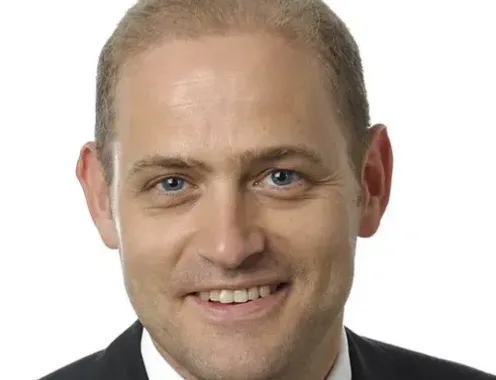
Thomas Staehli, Finance Director - Loomis Schweiz AG
To get started, please could you tell us a little about your background?
Second thing to focus on is your goals. If you know your long term goals, try to work towards them as early as possible. In my case it was a different path. In some ways it was positive because I gained a broader picture of the world - gaining different skills, a different mindset to those focused on one area - but nevertheless, focus on your goals and know what you want from life.
Third, consult with experienced people. Try to get in touch and keep in touch with people who are better than you and try to learn from their experience, and mistakes as well. Try to get as much as possible out of them and apply to your own personal career.
Looking back through your established career, what would you identify as a personal highlight?
What are your personal motivators?
How did you get to the level you are at? What great decisions do you believe you have made throughout your career and what risks have you had to take?
1. Quitting my job before my current job. This was definitely a risk with family to provide for, but I was confident that it was the right decision - and it was.
2. When we moved to the US. We have two children; our daughter was 3 years old and son 3 months. My wife left her well-paid job here. My salary was much lower than in Switzerland. Financially and career wise it was a risk. In the US they are not waiting for young Swiss people to come to work, they have their own great candidates there. You have to make yourself stand out. It was what I wanted. I probably didn’t have the same support as ex pats; I had to do my own tax filings there and find my own apartment there for the family. It was also a good experience. I specifically chose Deloitte because I thought I may have this chance later down the line.
Can you identify how your organisation stands out from the market and your competitors?
I also have the type of businesses that I wouldn’t work for, but as long as you can ethically support the business, why not work for it?
Be flexible in terms of position. You have to change career sometimes. You may not have the position or salary level you envisaged, but here in Switzerland everyone is relatively well paid, so why not work for less during a certain period of time. I was always flexible in that respect, therefore I would recommend it. Just because they had a certain level in a previous job, why not be open and adjust to a new reality when it is not possible to gain as much anymore.
I understand it is not easy, but it is better to work for less than not at all.
Describe yourself in 3 words
Flexible, reliable and open-minded.
In my view the only resource that increases in value if you share it is knowledge. Any other resource divided, you end up with less. Dividing knowledge increases its value for everybody.

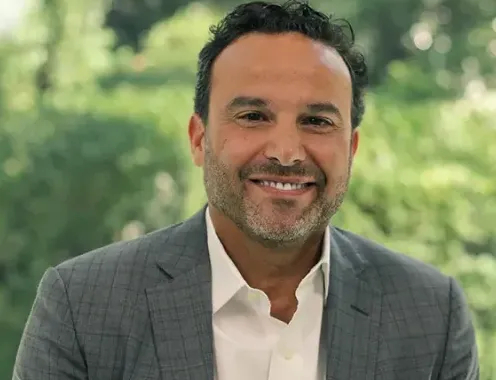
Nicola Scampoli - SVP Corporate Finance & Procurement at SWAROVSKI
I observe an oversupply of qualified talent in Finance and an undersupply in the Procurement market. My observations rely particularly on the turnover of staff and recruitment.
I have a broad role in an attractive, globally operating company that keeps me interested and challenged. I have the opportunity to deep dive in certain areas of interest (e.g. M&A and investments) and I can make use of my education, languages, skills and experience in a free-to-act working culture.








You can also use your social account to sign in. First you need to:
Accept Terms & Conditions And Privacy Policy